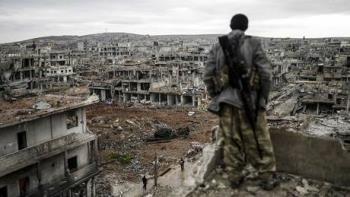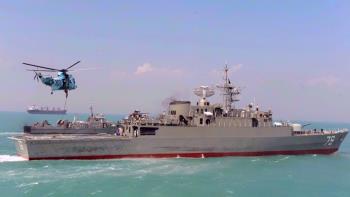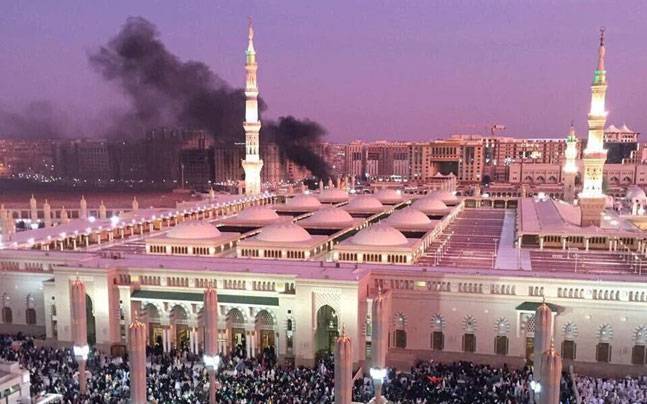Alwaght- The Islamic Republic of Iran and Hezbollah resistance movement have joined Muslim countires in condemning multiple terrorist bomb attacks that struck Saudi Arabian cities of Medina, Qatif, and Jeddah on Monday.
In his statement early on Tuesday, Iranian Foreign Ministry Spokesman Bahram Qasemi said terrorism knows no borders or nationalities and has no solution but the creation of international and regional consensus and solidarity against it,” said.
He pointed out that Iran condemns all manners of terrorism adding that all countries must unite against the sources and reasons behind terrorisms.
Sunnis, Shiite Victims of Attacks
Iran’s Foreign Minister Mohammad Javad Zarif also condemned the terrorists’ attacks in a twitter message saying that, “There are no more red lines left for terrorists to cross. Sunnis, Shiites will both remain victims unless we stand united as one.”
Elsewhere, the Lebanon’s Hezbollah resistance movement has also condemned the bombings.
Hezbollah said the attack near one of Islam’s holiest sites in the final days of the Holy Month of Ramadan was another sign “of how these terrorists disregard all that is sacred to Muslims and all that which they agreed to respect.”
The movement said terrorist attacks in recent days in Turkey, Iraq, Bangladesh and Lebanon confirm “that this dangerous epidemic needs a serious and different treatment.”
Hezbollah urged the international community to unite against terrorism and not to use it in “political score-settling which only reflects negatively on all without exception.”
Multiple bombs struck Saudi Arabia at the Holy City of Medina, the eastern city of Qatif and the port city of Jeddah in a dark Monday for the restless kingdom.
In the most deadly attack, four security officers were killed and five others were wounded when a suicide bomber detonated his vest outside the security headquarters of the Prophet's (PBUH) Mosque in Medina, the second-holiest site in Islam.
The Monday evening attack took place just as thousands of worshippers were about to hold sunset (Maghrib) prayers in the mosque where the Prophet Muhammad (PBUH) is buried in Medina.
In a statement carried on the state-run al-Ekhbariya news channel, the Saudi Interior Ministry said, "Security forces suspected a man who was heading towards al-Masjid al-Nabawi (the Prophet's Mosque) as he passed through a visitors parking lot. As they tried to stop him, he blew himself up with an explosive belt causing his death, and the death of four security personnel.
The Medina bomb attack took place immediately after two bomb blasts near a Shiite mosque in Saudi Arabia’s eastern city of Qatif. Reports say a suicide bomber blew himself up outside a Shiite mosque on Monday evening without causing any other injuries.
Oil-rich areas of Saudi Arabia’s Eastern Province where Qatif is located are inhabited by the country’s Shiite Muslim population .
Witnesses described body parts, apparently of a suicide bomber, in the aftermath. There were no reported casualties apart from the attacker, as there were no worshippers close to where the terrorist struck.
Early on Monday morning, a suicide bomber was killed and two security officers were wounded in a blast near the US consulate in the kingdom’s second city Jeddah.
The attack took place when security officers confronted a man acting suspiciously near the consulate in the Red Sea port city. He detonated his explosives, killing himself and wounding two guards, according to a report by the state-run Saudi Press Agency.
No group has claimed responsibility for the three attacks, but ISIS terrorist group Wahhabi extremists have attacked the kingdom repeatedly in recent years, mostly targeting the Shiite Muslims and state security personnel.
Meanwhile, Egypt and the United Arab Emirates have condemned the Monday terrorist attacks in Saudi Arabia.
Egypt’s Foreign Ministry says the reported attack during the Muslim holy month of Ramadan near one of Islam’s most sacred places confirms that terrorism “knows no religion or belief or any meaning of humanity.”
A Foreign Ministry official in the UAE was quoted in the state-run WAM news agency as saying the stability of Saudi Arabia “is the main pillar of the stability of the United Arab Emirates and the whole of the Gulf Arab region.”
The secretary general of the 57-nation Organization of Islamic Cooperation, which is headquartered in Saudi Arabia, says the attacks are an attempt to destabilize the kingdom. Iyad Madani said that those who carried out, planned or supported these attacks were simply carrying out desperate acts to undermine the security and stability of the Kingdom of Saudi Arabia.
Madani stated that any person who takes out his or her life, kill and terrorize innocent people; and commit such crimes in the holy month of Ramadan and in Medina and close to the sacred mosque of the Prophet, negates being a Muslim and refutes every Islamic value. It defies the very essence of being human. Such terrorists have become void tools empty of conscious and rationale, used by the promoters of radicalism, violence and terrorism, he added.



























